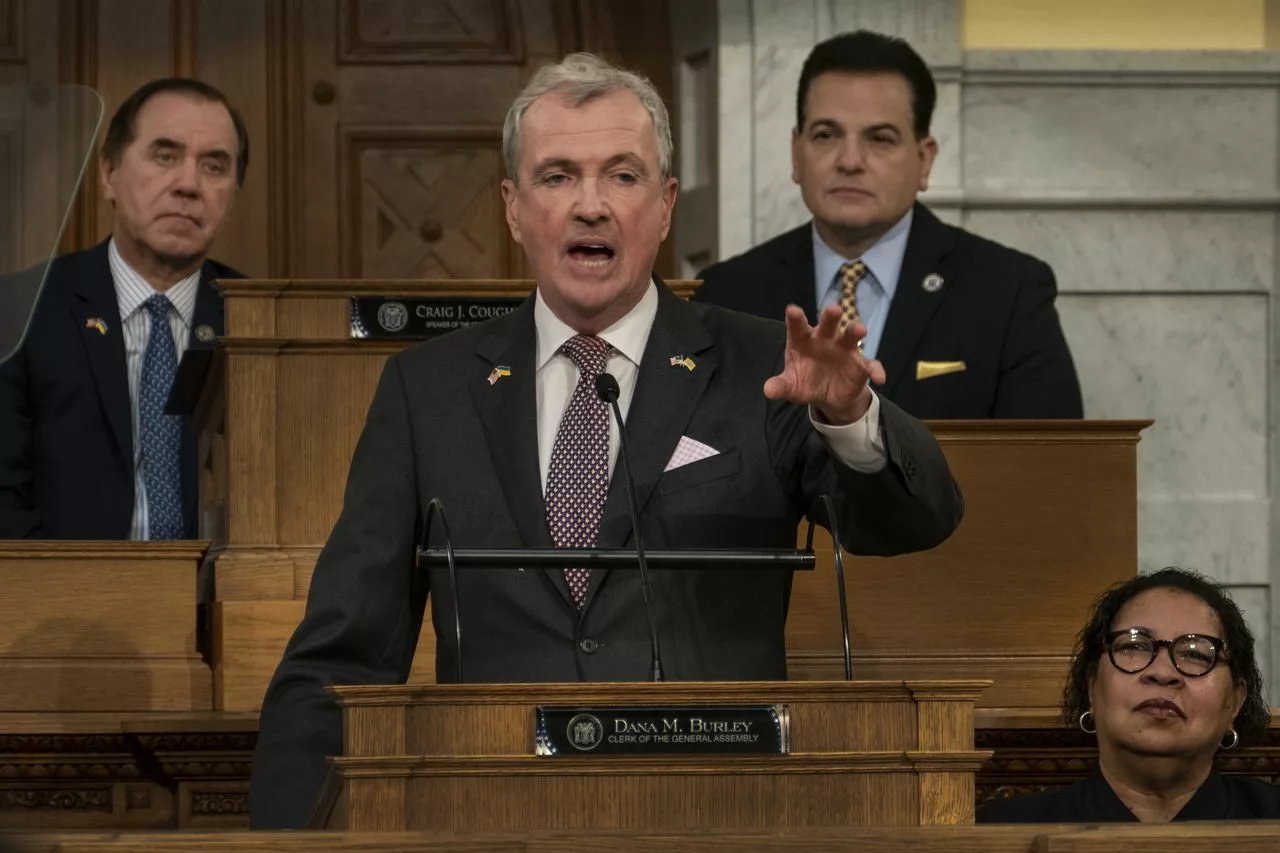Murphy expects a ‘shallow, fairly short-lived’ recession. What the signs say in NJ

With year four of the COVID era starting in just a few weeks, many experts are predicting that the up-and-down economic climate it created will result in a short recession this year.
Gov. Phil Murphy is among them.
According to the New Jersey Monitor, Murphy said during his remarks at the South Jersey Chamber of Commerce’s annual luncheon that he’s “in the camp of a shallow — real but meaningful — but a shallow, fairly short-lived recession” and that “part of the reason I believe that is there’s an enormous amount of liquidity on the sidelines.”
Neither the state’s Department of the Treasury nor the governor’s office was willing to provide any further context or explanation of the comments
Murphy would seem better equipped than most to forecast the economic climate. He spent two decades in banking working for Goldman Sachs.
However, conservative think-tank Garden State Initiative said that Murphy was “repeating the accepted views of almost every forecaster — but such things can be wrong,” analyst Charles Steindel said. Still, he agrees with the assessment as well.
“It is very much a consensus view at this point, but saying that, we can’t yet dismiss a deep recession or none at all,” Steindel said. “Things are really still up in the air.”
Another element of uncertainty is federal finances. The United States hit its debt ceiling on Thursday and Republican lawmakers have demanded spending cuts in exchange for raising that limit so the government can pay its bills. Economists warn that America defaulting on its debt could cause financial markets to spiral and potentially trigger an economic decline.
One economist, Gregory Daco of the firm E-Y Parthenon, said a debt default would mean an “instantaneous” cut to the country’s gross domestic product worth between 4.5% and 5.0%, “leading to a self-inflicted recession and risking severe financial market dislocations.”
Murphy and state lawmakers have planned for a recession. Thanks to better-than-expected tax revenues last year, they socked away a surplus nearing $7 billion in case of an economic downturn, though no one detailed how that money would be spent.
The Treasury reported last week that collection of major taxes in December was down more than 12%, or $664 million, from last December but that overall collections were up $585.3 million, or 3.2% during the same six months last year.
Those figures alone don’t forecast the state’s economic future, but they are an indicator of what may be ahead. Another one is the unemployment rate. Nationally it was 3.5% in December; in New Jersey, it was 3.4%, according to the Department of Labor and Workforce Development.
Even though the state’s unemployment rate is low, the Labor Department saw the job and wage growth slow in the fall, another sign, along with inflation and rising interest rates, that Murphy said at the time suggested a “challenging” period ahead. On Thursday, the agency said the labor market “grew slightly” in December.
But some argue that the usual benchmarks, such as unemployment rates, aren’t the way to predict what the economy will do in the next few months or even years.
John Cochrane, an economist at Stanford University, said in an interview published by the school that rather than focus on quarterly changes in the U.S. economic growth rate, which is how recessions now are gauged, the long-run expansion of the economy, or lack thereof, matters more.
There are other reasons the usual indicator might not be working as well. Lawrence Gillum, a fixed-income strategist at LPL Research, told USA TODAY that there are two possible reasons. The first is because of all the short-term rate hikes that have been made by the Federal Reserve while the second is the yield changes that usually show a recession, which occurred when the interest rates were low.
He also pointed out that people are still spending money and businesses are still hiring more workers.
“Economic models help simplify a complex world but it’s important to remember that (a) signal isn’t always accurate and sometimes things are, in fact, different,” he said.
